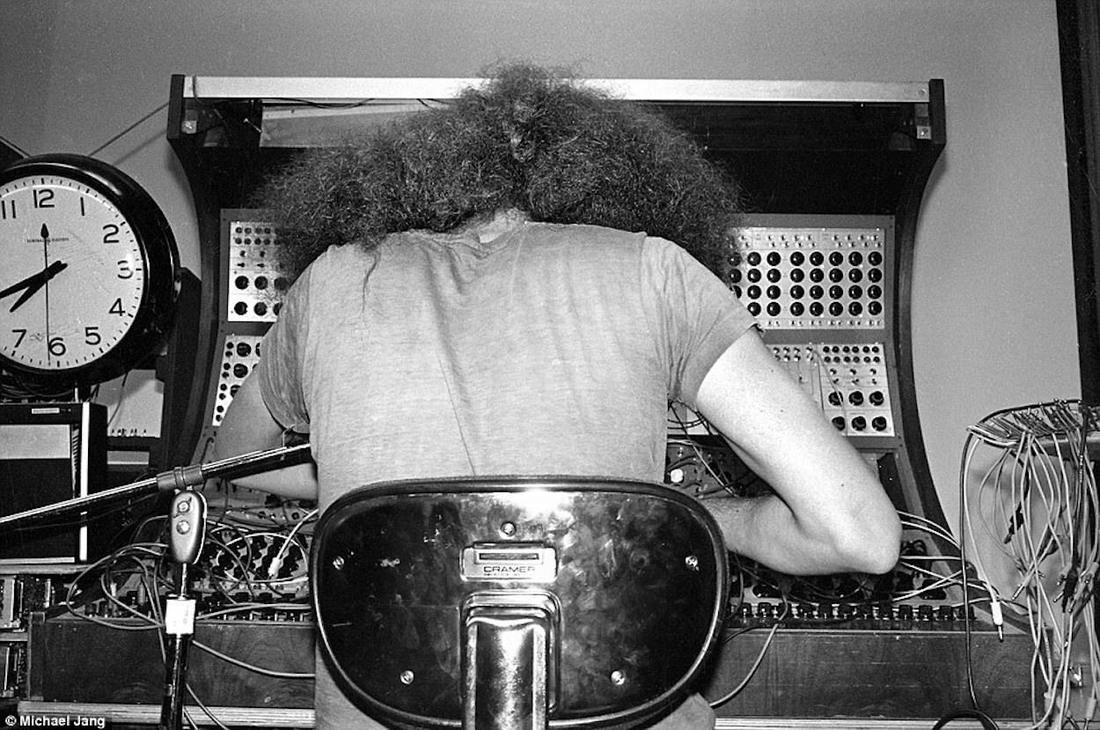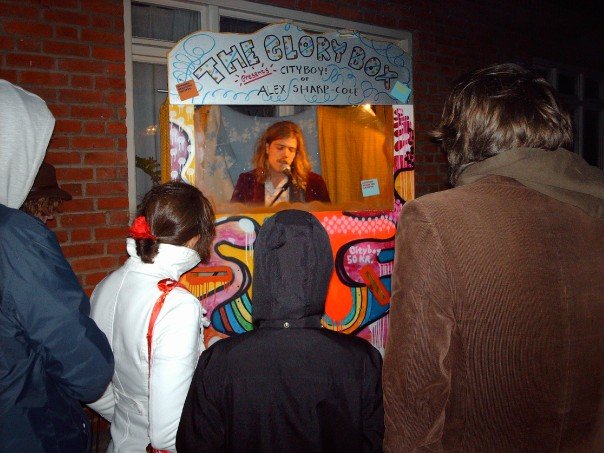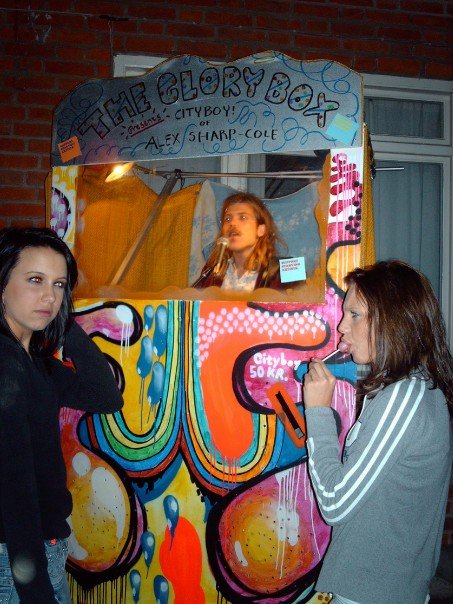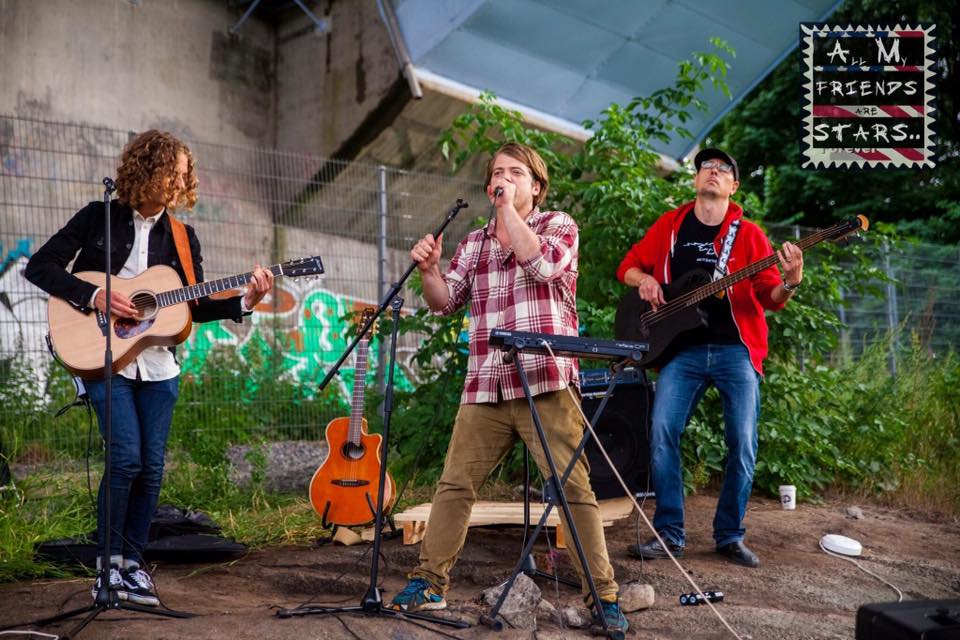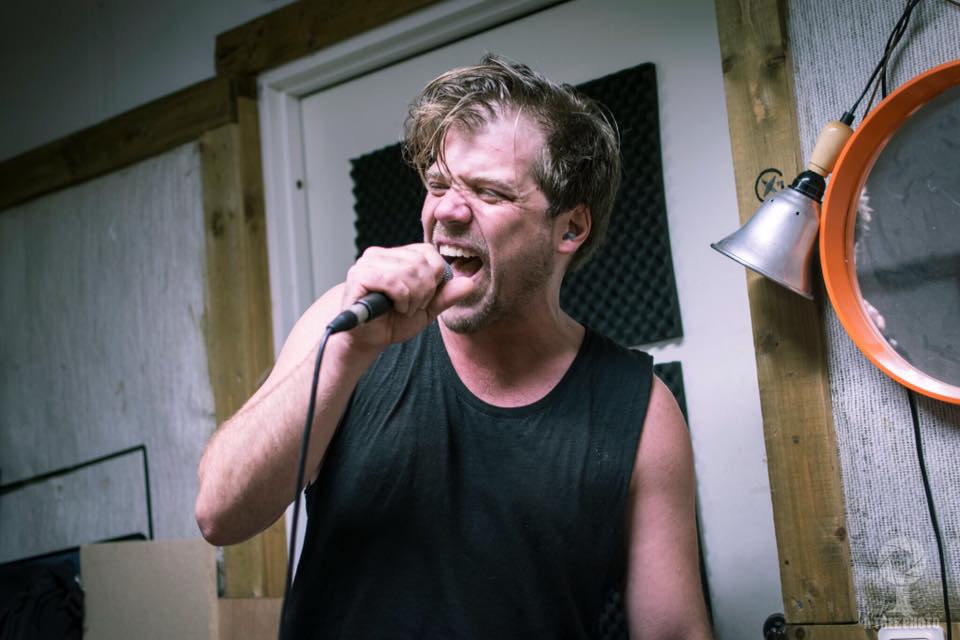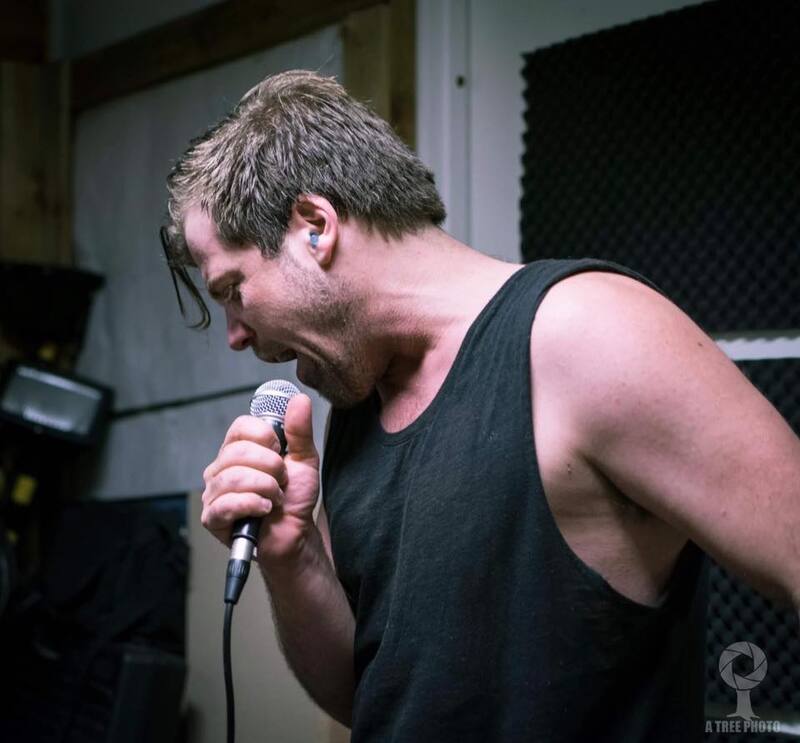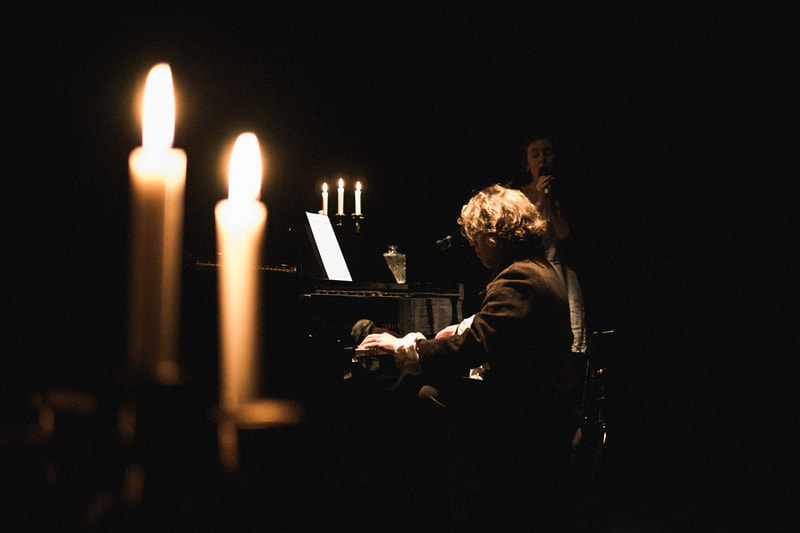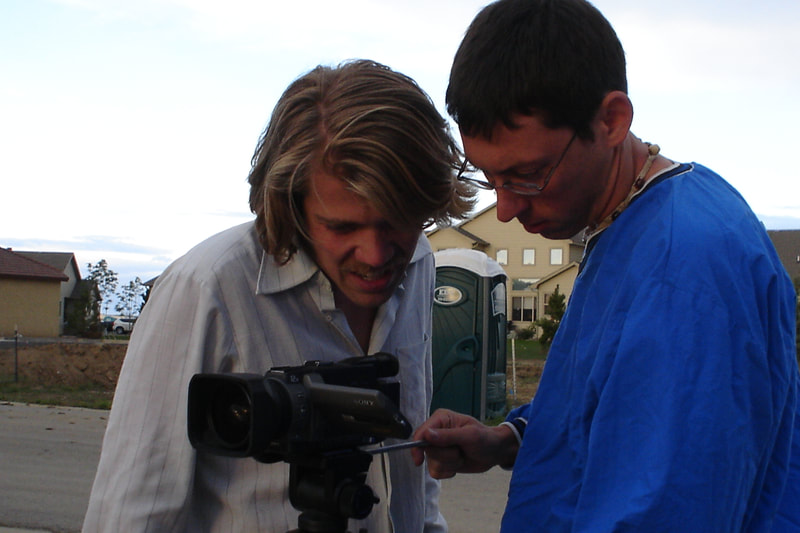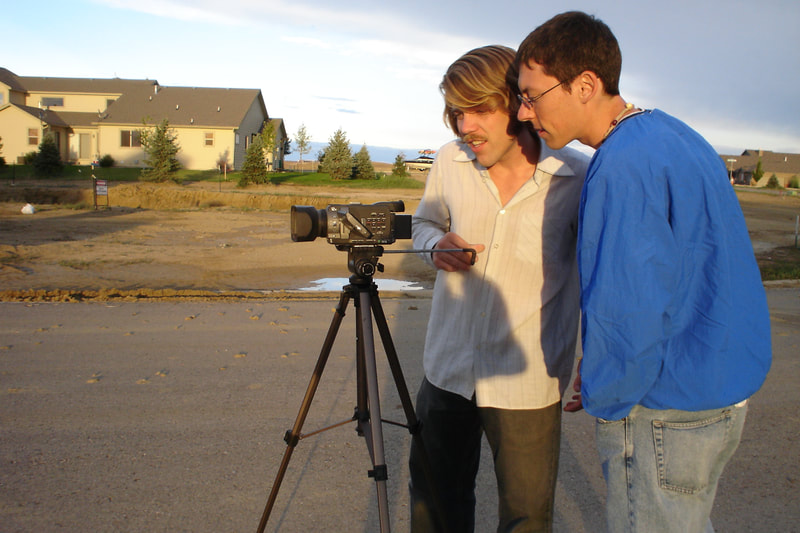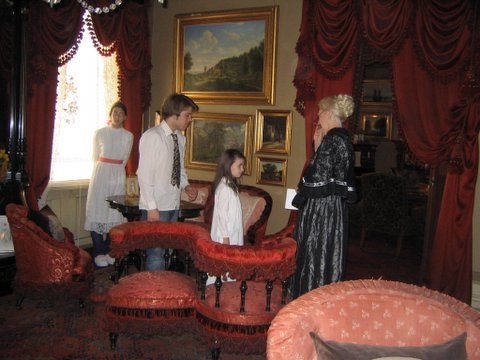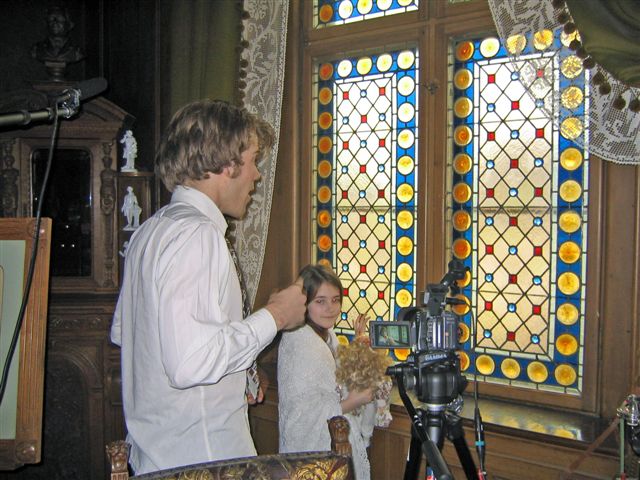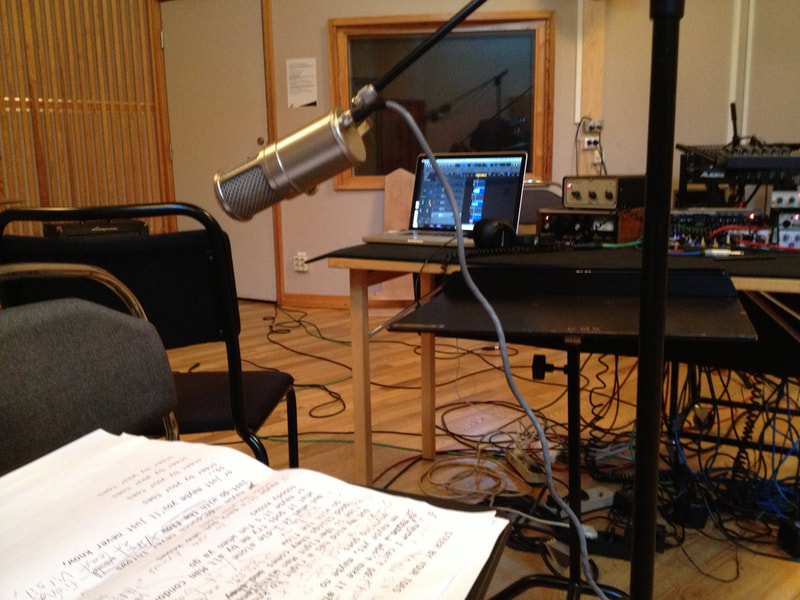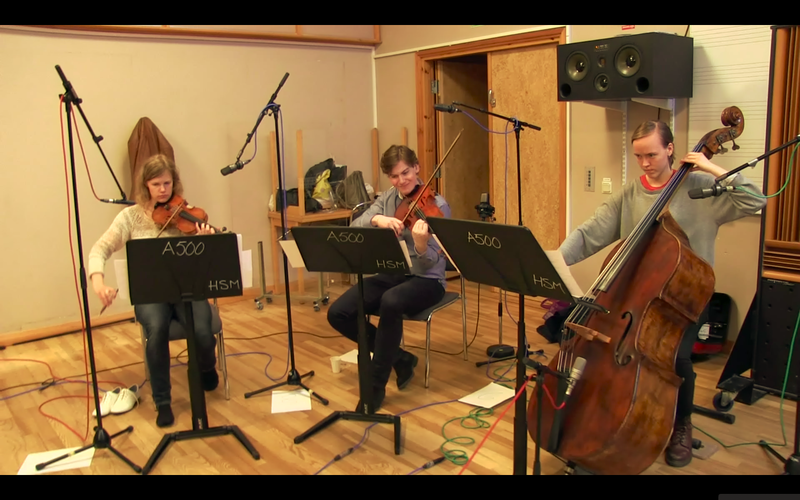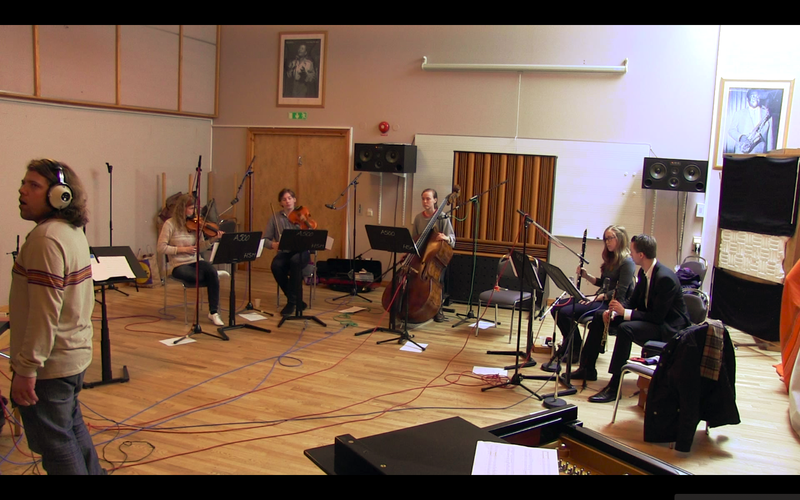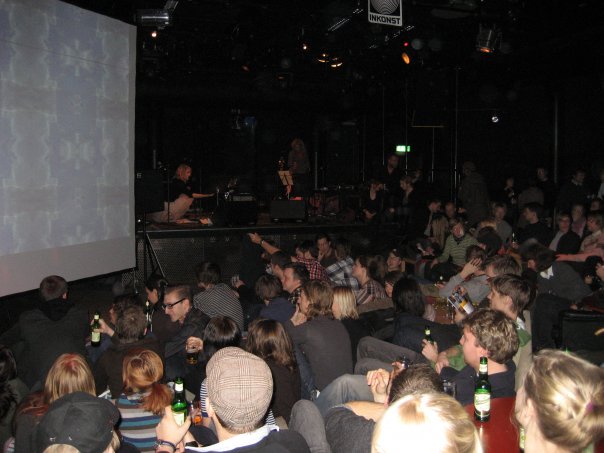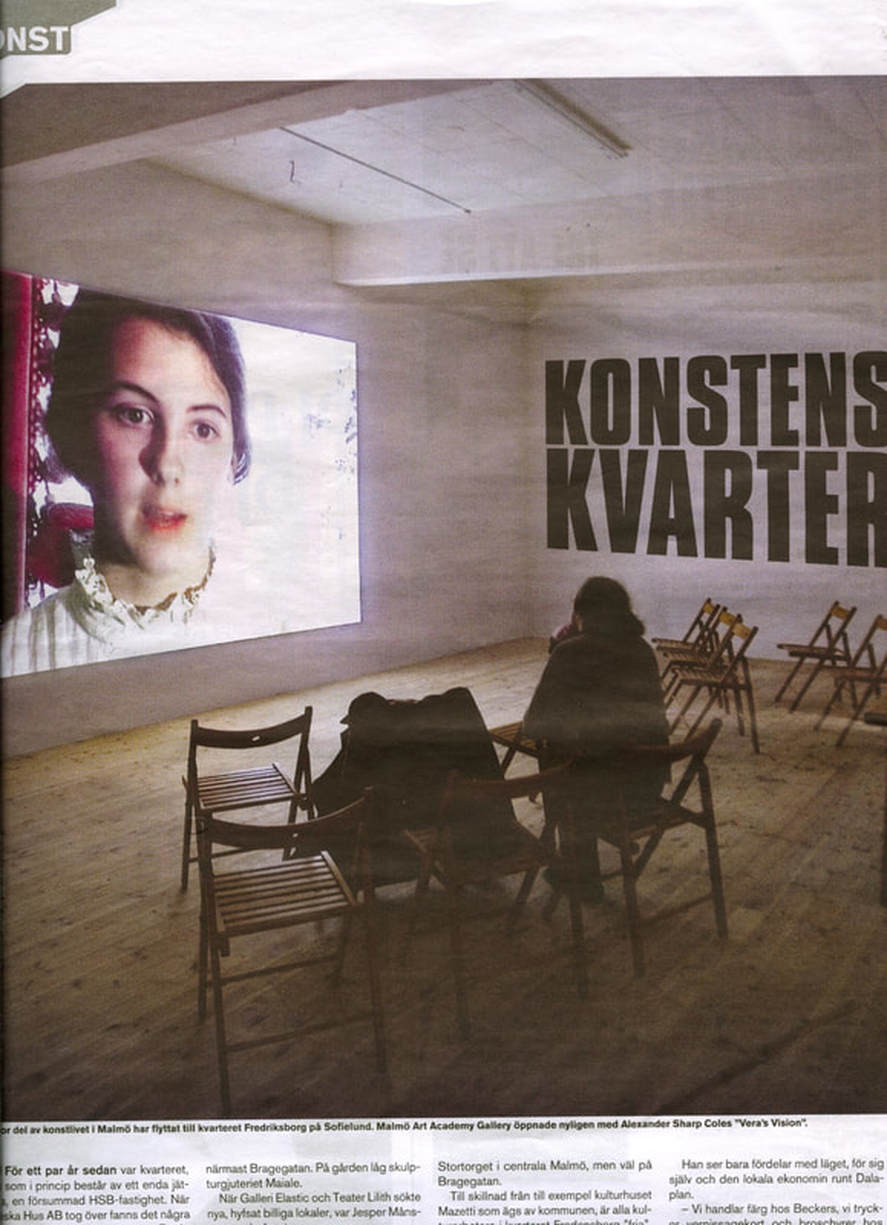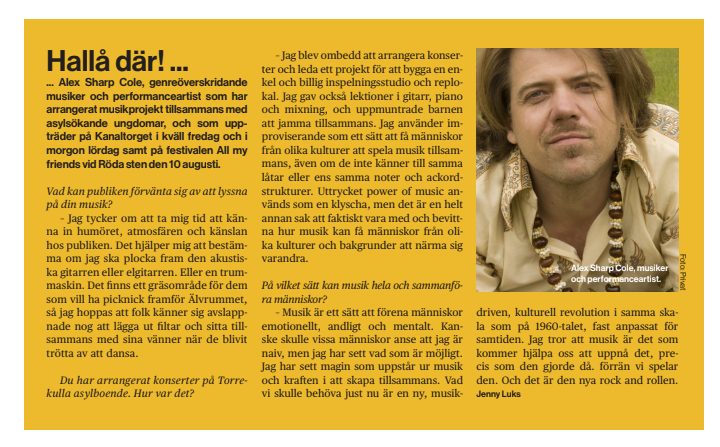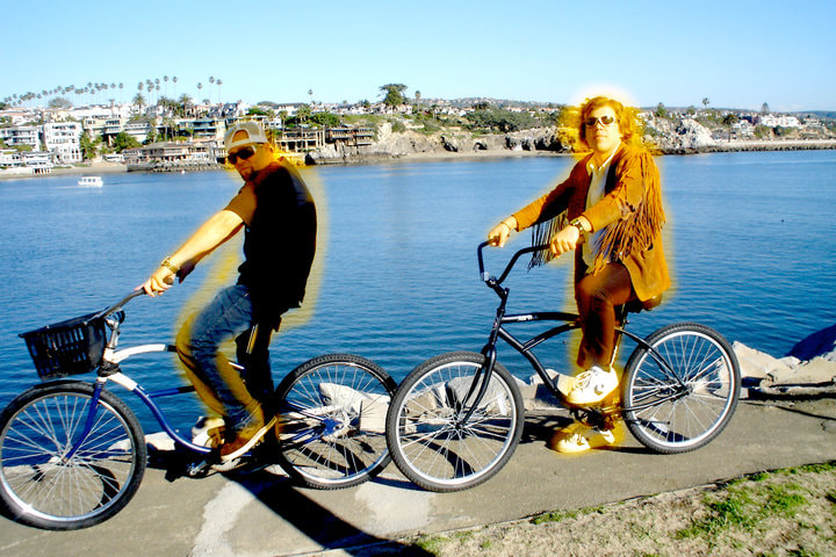Working with kids at-risk for gang activity in Los Angeles to create their own musical, Alex began by recording their stories. As the lead sound designer for the show at the Red Cat Theater in Hollywood, he wanted the sound to command the audience attention from the first moments the curtains fell open. At the beginning of the musical, before the lights went up, he decided that a cacophony of children's voices -- heard from all sides of the audience -- would fill the theatre. These voices came from the recordings he made earlier when he interviewd the kids and asked of each the same question: What is the worst thing you have ever been called by a bully?
Thus began the musical in darkness that would tell their stories.
Thus began the musical in darkness that would tell their stories.
Out from the darkness, through the blinding white light . . .
"The Eleusinian Mysteries Meets the California Institute of the Arts"
Alex Sharp Cole
Why do humans make music?
Why do we like it?
Is music important for human life?
The ability of music to inspire vast, sweeping movements and instigate social change was part of my personal motivation for creating and teaching a multi-disciplinary arts course for university students at The California Institute of the Arts (CALARTS) entitled . . .
"How to Start a Cultural Revolution in Your Home Town (the Conscious Creation of Context)"
- - -
There seemed to be almost instant interest from graduate and undergraduate students alike, from different departments of the university from music, filmmaking, writing to theatre, acting and fine art.
It excited me moreover that these students came from around the world. My hope was for them all to go back home after the course was through and quietly sew seeds of non-violent, cultural revolution. And I believe, in some ways, that I began to feel a grave sense of social responsibility as the term progressed, especially for those students coming from countries where artistic expression was not considered an inalienable human right. A few of them had told stories in class of acquaintances imprisoned, or disappeared. One female student even had a cousin who was arrested that summer - for performing in a satirical play which criticised that particular country's leader.
In every country, regardless of where it is in the world, it's citizens are always encouraged to believe they live in a good place. . . a good place, where we all are free and whose laws are good. It is only in those far-off, distant places where the bad things happen... where saying the wrong thing on social media might land you in jail, or where writing a satirical joke, or singing the wrong lyrics can end one's life or livlihood.
It is harder to notice the walls of a mental prison. . . the invisible maze we navigate, day by day. Even though most of us go to great lengths to avoid bumping into one of the walls, to stay on "the right track" and on the path toward acceptable, behavioural norms which meet the expectations of whatever groups we belong to. Unfortunately for you, for me, and the majority of the human race, an invisible prison can be equally unjust, confining, and difficult to escape.
It is the primary role of the artist in society to tear down the walls.
When walls are invisible - it is his or her job to make us see.
Why do we like it?
Is music important for human life?
The ability of music to inspire vast, sweeping movements and instigate social change was part of my personal motivation for creating and teaching a multi-disciplinary arts course for university students at The California Institute of the Arts (CALARTS) entitled . . .
"How to Start a Cultural Revolution in Your Home Town (the Conscious Creation of Context)"
- - -
There seemed to be almost instant interest from graduate and undergraduate students alike, from different departments of the university from music, filmmaking, writing to theatre, acting and fine art.
It excited me moreover that these students came from around the world. My hope was for them all to go back home after the course was through and quietly sew seeds of non-violent, cultural revolution. And I believe, in some ways, that I began to feel a grave sense of social responsibility as the term progressed, especially for those students coming from countries where artistic expression was not considered an inalienable human right. A few of them had told stories in class of acquaintances imprisoned, or disappeared. One female student even had a cousin who was arrested that summer - for performing in a satirical play which criticised that particular country's leader.
In every country, regardless of where it is in the world, it's citizens are always encouraged to believe they live in a good place. . . a good place, where we all are free and whose laws are good. It is only in those far-off, distant places where the bad things happen... where saying the wrong thing on social media might land you in jail, or where writing a satirical joke, or singing the wrong lyrics can end one's life or livlihood.
It is harder to notice the walls of a mental prison. . . the invisible maze we navigate, day by day. Even though most of us go to great lengths to avoid bumping into one of the walls, to stay on "the right track" and on the path toward acceptable, behavioural norms which meet the expectations of whatever groups we belong to. Unfortunately for you, for me, and the majority of the human race, an invisible prison can be equally unjust, confining, and difficult to escape.
It is the primary role of the artist in society to tear down the walls.
When walls are invisible - it is his or her job to make us see.
Artistic Practice
Often taking his artistic work outside the traditional environment of art gallery or theater, Alex Sharp Cole is able to reach new audiences who might not otherwise have had the opportunity to experience his work. One example of this is his site-specific, performance-art piece "Cult" (2010), which he performed in a vacant lot with the help of 12 people who were secretly actors, near the border of a Los Angeles suburb.
To passers-by, with no context, it can be difficult to distinguish between what is "real" and what is performance. There is probably some sense of unpredictability and danger, out in the world, which does not exist in quite the same way onstage, or within the walls of the white cube.
I sometimes think about questions like -
What is performance? Isn't everything we do performance?
. . . Isn't everything we perform real?
In Europe he has been hosting a summer concert series, also created a music program and recording studio for kids without parents in Sweden at a peaceful refugee home on the countryside.
* * *
Artistic Research
Alex Sharp Cole documents his investigation into the mystery of human creative inspiration with writing, music and filmmaking. He seeks answers to age old questions like "where does inspiration 'come from?'' His art is driven by an interest in testing borders, dissolving social inequalities and constraints in society -- as well as those barriers within oneself.
* * * * * * * * *
Internationally active as a singer-songwriter and performative sound artist and in his independent art practice, Alex Sharp Cole has also been teaching, collaborating and mentoring others.
* * * * * * * * *
PARTIAL LIST OF PUBLISHED WORKS
- - -
EP Albums / CDs / recordings :
The Aftermath of POP
Submadreamgun
Adventures in POP
The Lost Songs
Cityboy: VideoLoveGunsForever!
The Gamlestan Apartment Recordings
Films / video / DVDs :
Light and Dark (16mm)
CityBoy - found footage video art. Music video.
"Summer of FUN" (Hi-8 video, recorded sound, music)
Vera's Vision (Denmark - Sweden - U.S.A.). Featuring actress Vivienne McKee
A Song to Stop Dancing (documentary. Sweden. 58 min.)
'The Gamlestan Apartment Recordings' (documentary)
....
- *See IMDB for music for credits on music for films, sound design / dept, TV, etc.
links
Spotify
Facebook Music Page
Reverb Nation
Band Camp
Sound Cloud
YouTube
Vimeo
* *
-PRESS-
Ladies and gentlemen of the press can please use contact form below.
Spotify
Facebook Music Page
Reverb Nation
Band Camp
Sound Cloud
YouTube
Vimeo
* *
-PRESS-
Ladies and gentlemen of the press can please use contact form below.
Thank you to my mentors and teachers over the years . . .
Stan Brakhage Anders Hultqvist
Jerry Aronson Staffan Mossenmark
Jimmie Durham Ole Lützow-Holm
Lars Nilsson
Jerry Aronson Staffan Mossenmark
Jimmie Durham Ole Lützow-Holm
Lars Nilsson
This website uses marketing and tracking technologies. Opting out of this will opt you out of all cookies, except for those needed to run the website. Note that some products may not work as well without tracking cookies.
Opt Out of Cookies

